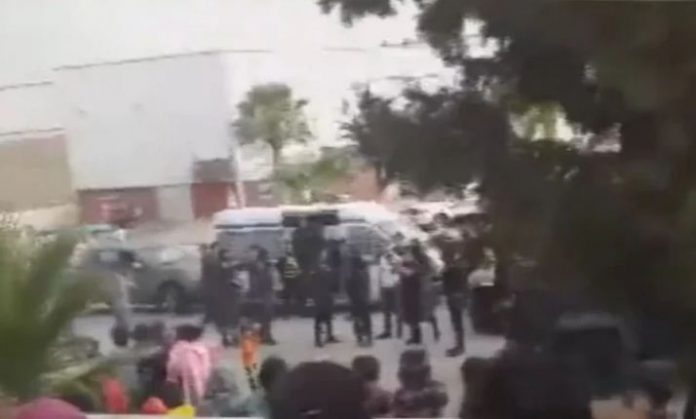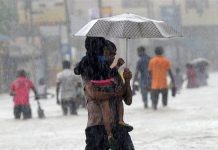Jordanian security forces have used tear gas on a group of Sri Lankan migrant workers, stranded in the Middle East due to unemployment.
It is reported, the migrant workers were left unemployed after the COVID-19 pandemic badly affected the Jordan economy.
Reports from Jordan suggest a tense situation arose after talks between the Sri Lankan Embassy officials and the Sri Lankan migrant workers to solve the existing issues failed on Monday (27).
The incident took place at a location which houses around 500 unemployed Sri Lankans from the city of Al-Karak in Jordan.
The Sri Lankan migrant workers claim, it’s been months since they were forced out of employment due to COVID-19 and have been stranded in Jordan with no way of returning home to Sri Lanka.
“Right now, there is a small group here. But there are many more in the hotels. It’s been 05 months since the factory was closed down. The employer has failed to compensate us.” said one migrant worker adding ” We only receive two meals a day. The embassy asked us to come here to solve the issue. But when we arrived here, they tried to evade us. But we didn’t allow them to go away without solving our issues. The embassy officials called the Jordanian police and they fired tear gas on us. Almost two dozen workers have been hospitalized. We do not want to die here. Please take us back to Sri Lanka.
The Deputy General Manager of the Sri Lanka Bureau of Foreign Employment speaking to media said a group of personnel from the Sri Lankan Embassy in Amman, Jordan had visited the site to inspect into a situation situation surrounding garment workers.
The incident took place when efforts were made to control the situation.
Adding the situation was brought under control, he said the migrant workers were given allowances to meet their needs and measures are underway to repatriate them to Sri Lanka.
















